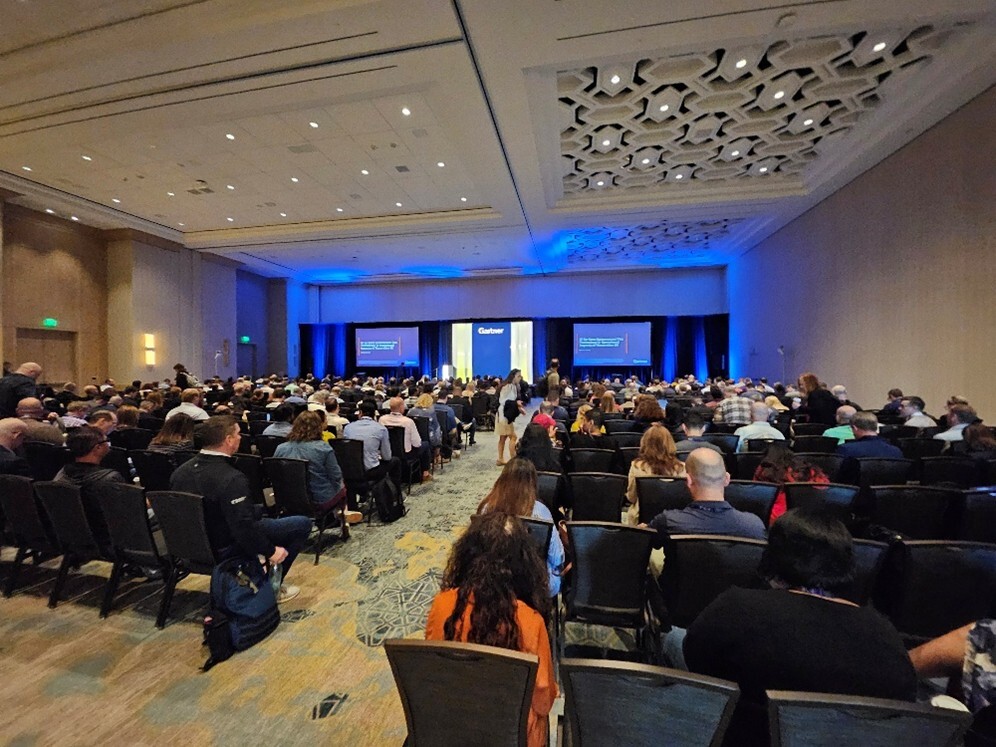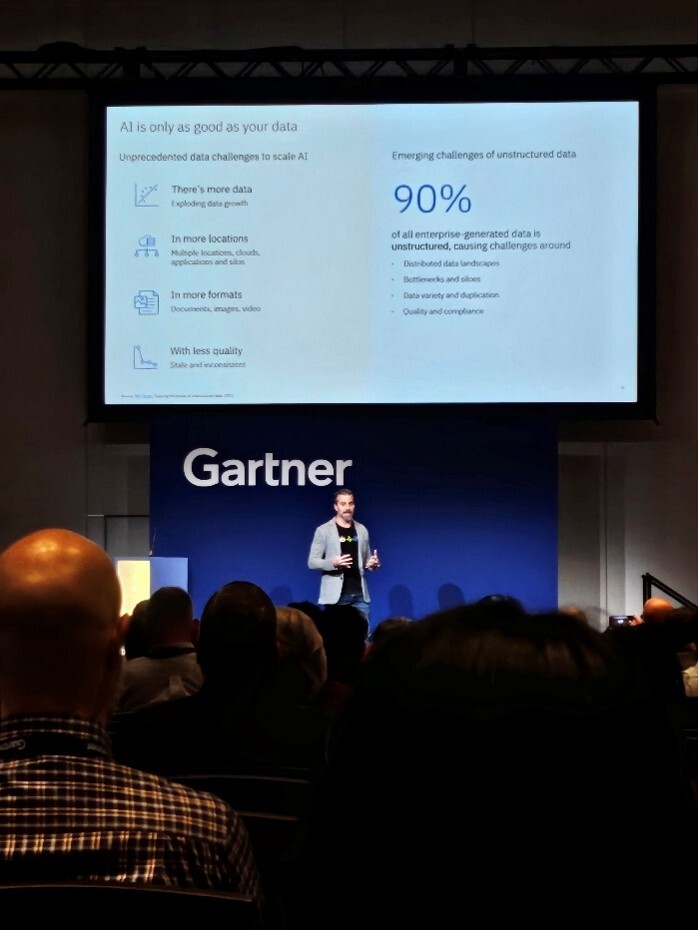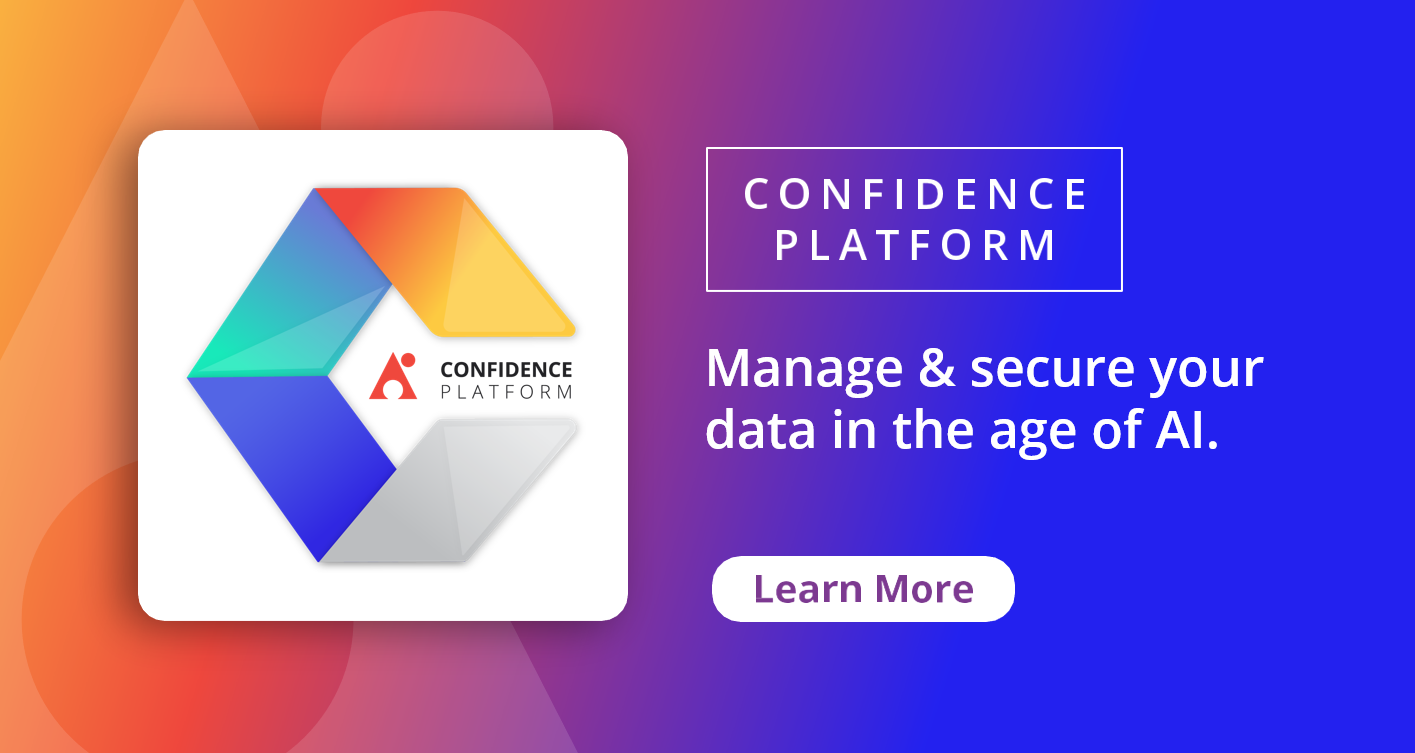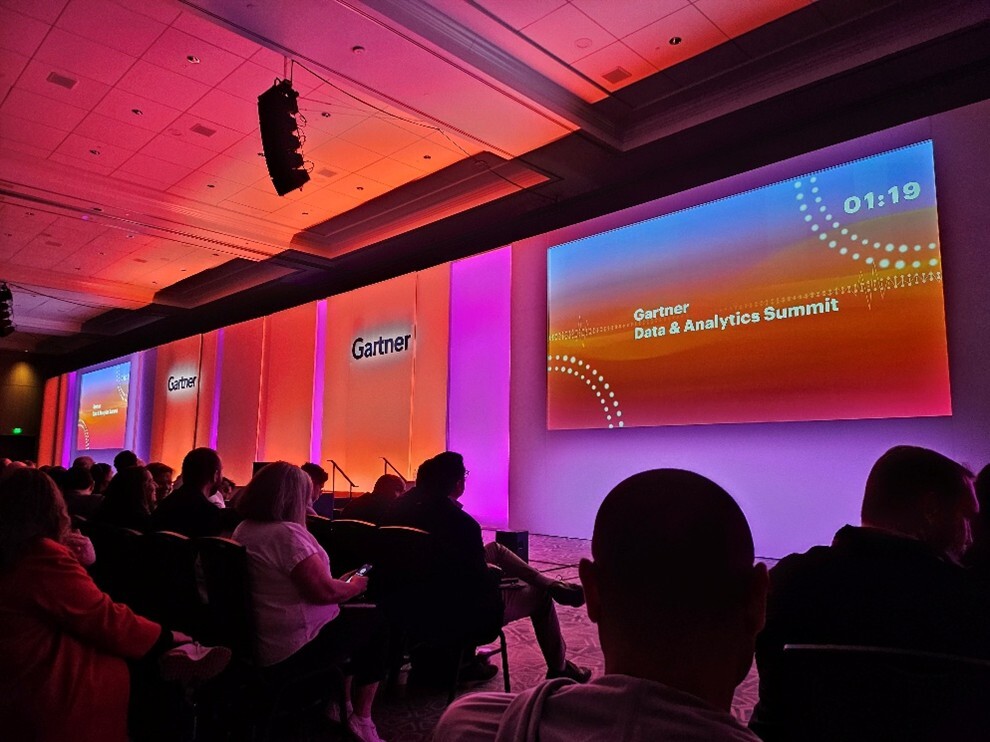The Gartner Data & Analytics Summit is always a highlight of the year for anyone passionate about the future of data, analytics, and AI (which quite obviously includes myself!). While I was there, I had the opportunity to dive into thought-provoking sessions, explore an innovative expo floor, and listen to industry leaders share their insights on the trends, challenges, and opportunities that will define the coming years.
While the information comes at you thick and fast, it was still an exciting journey (caffeine helps!) and below are my reflections and takeaways from the summit.

Top Takeaways from the Event
No matter what the topic was – unstructured data, big data, metadata, or any other kind of data – amidst all the excitement, innovation, and buzzwords, a few key themes emerged that were impossible to ignore:
1. Trustworthy Data is the Foundation of AI
AI might be the shiny new toy in the analytics world, but without trustworthy, high-quality data, even the most advanced AI will fall flat. Time and again, speakers emphasized the importance of data governance, such as this takeaway from IBM’s session on “Is Your Data AI-Ready?”: Enterprises with robust data governance double their return on AI investments. The reason? If ALL organizations out there have the same AI tools trained on the same data sets, there’s no advantage. That’s why incorporating your internal knowledge is critical for a competitive edge.
While similar messages echoed across various sessions, the overall message is clear: trust in your data is not a “nice-to-have” — it’s a competitive advantage and a necessity.

2. Data Governance is Changing
An interesting trend is the evolving role of governance leaders. While data governance was traditionally overseen by CIOs, more organizations are shifting this responsibility to chief data and analytics officers (CDAOs). This shift reflects the growing importance of governance not just as a compliance task but as a strategic function tied to business outcomes, which also ties with overall organizational data strategy.
3. AI Success Requires More Than Just Tech
Scaling AI isn’t just about having the right technology. It’s about having the right people, processes, and culture in place. Building trust in AI means addressing ethical concerns, ensuring transparency, and fostering collaboration between business and technical teams. It’s a balance of innovation and accountability.

4. Metadata is Critical to Intelligent AI
Mark Beyer, research vice president and distinguished analyst at Gartner, delivered a particularly memorable session on active metadata. He made a compelling case for moving beyond simply cataloging data to leveraging active and machine learning-augmented metadata to truly unlock AI’s potential. His challenge to the audience? Stop complaining about not having enough metadata — you already have it, so start using it more effectively!
5. Gen AI is the Buzz — and the Challenge
GenAI was front and center, but the discussions weren’t just about possibilities — they also highlighted the pitfalls. One standout statistic from Arun Chandrasekaran, distinguished vice president - analyst at Gartner, in his session “Top 10 Reasons Why Generative AI Projects Fail and How to Fix it”: Through 2025, at least 50% of GenAI projects will be abandoned due to poor data quality, inadequate risk controls, escalating costs, or unclear business value. The solution? Invest in modular composability and integration to ensure these models can adapt and scale effectively, and find value by bringing YOUR data into the models (sound familiar?). Often, this requires a modernization effort, as Arun quipped, “AI is in the 21st century, while our data is in the 19th century.”

Why It All Matters
The Gartner Data & Analytics Summit left me reflecting on the exciting yet challenging future of AI and data governance. The conversations around AI trustworthiness, metadata evolution, and the high level of cross-functional collaboration across business leaders (in IT, data, security, operations, HR/training, and more) were not only relevant but actionable. The key message? Success in data and AI isn’t just about adopting the latest technology — it’s about building a foundation of trust that starts with making sure your business data is robust, fostering a culture of accountability, and constantly evolving to meet new challenges.
For anyone navigating the world of data and analytics, the summit served as both a wake-up call and a reminder of the incredible opportunities ahead. And while the sessions, exhibits, and coffee may blend together after many busy days, the insights gained will stick with me for much longer.
You can check out my video from the event and here are some photos:




